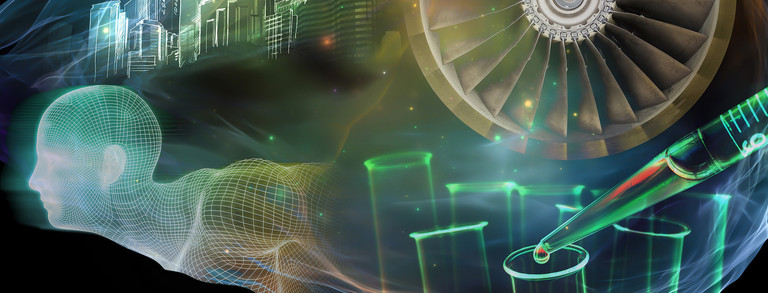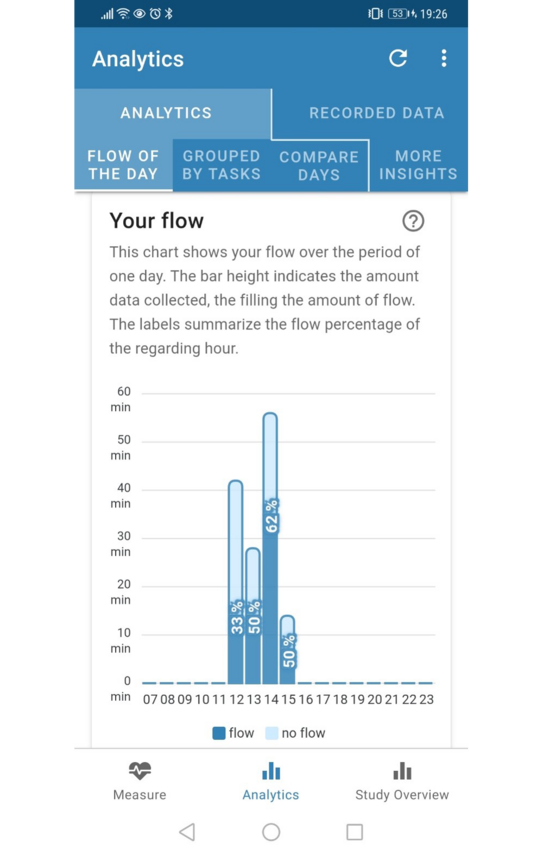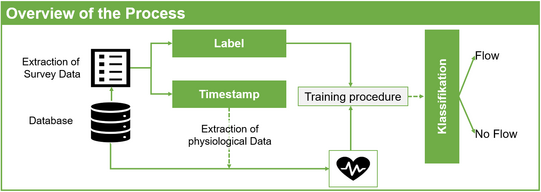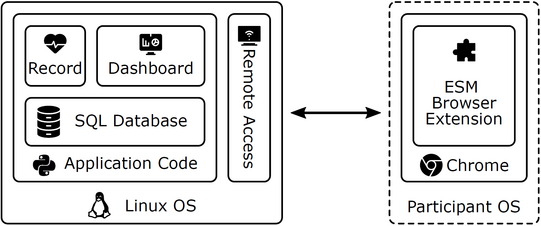Physiological Computing
Development of a mobile App to improve the Understanding of Flow by Knowledge Workers
Flow is defined as a state in which people are completely absorbed in their activity. Since increased flow is associated with both improved performance and an enhanced sense of well-being, this state is considered particularly desirable in the work context. Therefore, in this project, we developed a mobile flow app for knowledge workers that enables app users to better understand their flow throughout the day (e.g., when productive phases occur). The developed flow app collects physiological data, classifies flow states using machine learning methods, and presents the flow classification results aggregated and visualized in the app in addition to the physiological data (e.g., heart rate).
Development of an adaptive Instant Messaging Blocker to maintain Flow during productive Periods
Notifications from instant messaging applications can interrupt employees' productive periods. While there are manual ways to influence instant messenger notification behavior, such as turning off the application or muting notifications for certain periods of time, these measures require self-discipline and often result in missed notifications when not in flow. The developed adaptive instant messaging blocker aims to solve this problem by detecting users' flow state at predefined intervals, based on their physiological data and with the help of machine learning methods. Once a flow state is detected, the Do-not-Disturb status is automatically activated for the duration of the flow state.
Classification of Flow based on Heart Rate Variability using Machine Learning
Flow is considered a desirable state because it is related to improved performance and well-being. However, current methods cannot measure a person's flow continuously or without interrupting current activity. In this project, flow was classified by machine learning using heart rate variability (HRV) data collected in a field study with knowledge workers. A classifier was trained here to distinguish between "flow" and "no flow." This classification provides a foundation for the development of adaptive systems that can continuously detect flow without interruption and intervene on that basis.
Developing an Infrastructure for Researching Students’ Flow in Remote Learning
In this project, we developed an infrastructure to collect physiological data, surveys, and browsing behavior data to capture students’ learning experience during remote learning. Our solution is based on a Raspberry Pi minicomputer and a Polar H10 chest strap. Preliminary results and experiences from a field study with medical students not only show the potential to collect different types of data during remote learning, but can also serve as a basis for future work. For example, a less intrusive and continuous measurement method can be developed based on classifying cognitive-affective states such as flow or other learning-related constructs with the collected data using machine learning.





